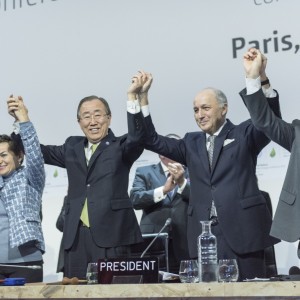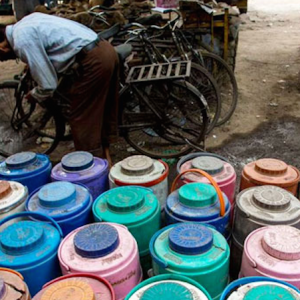The Stream, December 16: Flint Declares Emergency Over Lead Contaminated Water
The Global Rundown |
The city of Flint, Michigan, declared a state of emergency to garner state and federal support to address its lead contaminated drinking water. Nearby Detroit showed little sign of forgiving the debt owed on city residents’ water bills, and water companies in South Africa stopped service to 30 villages that failed to pay for their water. Record high temperatures were recorded in the Arctic this year, while higher water temperatures could curb the ability of saltwater crocodiles in Australia to stay underwater. Iraq’s health care system is crumbling, leaving many public health responsibilities to nongovernmental organizations.
“I can tell you today that we need state and federal assistance for the people to feel comfortable. We need some help.”–Karen Weaver, mayor of Flint, Michigan, after declaring a state of emergency in the city due to water supplies contaminated with lead. (NBC News)
By The Numbers |
30 villages Number in South Africa where water service was suspended after they did not pay. Bloomberg
23,000 water accounts Number shut off in Detroit, Michigan over the past 12 months due to overdue bills. The city has indicated that it is unlikely to forgive debts still owed. The Detroit News
Science, Studies, And Reports |
The annual average air temperature in the Arctic in 2015 was 1.3 degrees Celsius (2.3 degrees Fahrenheit) above the long-term average, according to the Arctic Report Card released by the National Oceanic and Atmospheric Administration. The high temperatures helped lead to the lowest ice cover extent since records began in 1979. Guardian
Saltwater crocodiles that live in Australia’s northern estuaries cannot dive and stay underwater as long when water temperatures are warmer than normal, according to a study published in the journal Conservation Physiology. The findings raise concerns about how the species will fare under changing climate conditions, the study’s authors said. ABC
On The Radar |
The health care system in Iraq is struggling amid conflict and government spending cuts, leaving nongovernmental organizations to largely address public health crises like the country’s cholera outbreak. Shortages of basic services like electricity and water have also spurred citizen protests. Reuters
A news correspondent for Circle of Blue based out of Hawaii. She writes The Stream, Circle of Blue’s daily digest of international water news trends. Her interests include food security, ecology and the Great Lakes.
Contact Codi Kozacek






Leave a Reply
Want to join the discussion?Feel free to contribute!